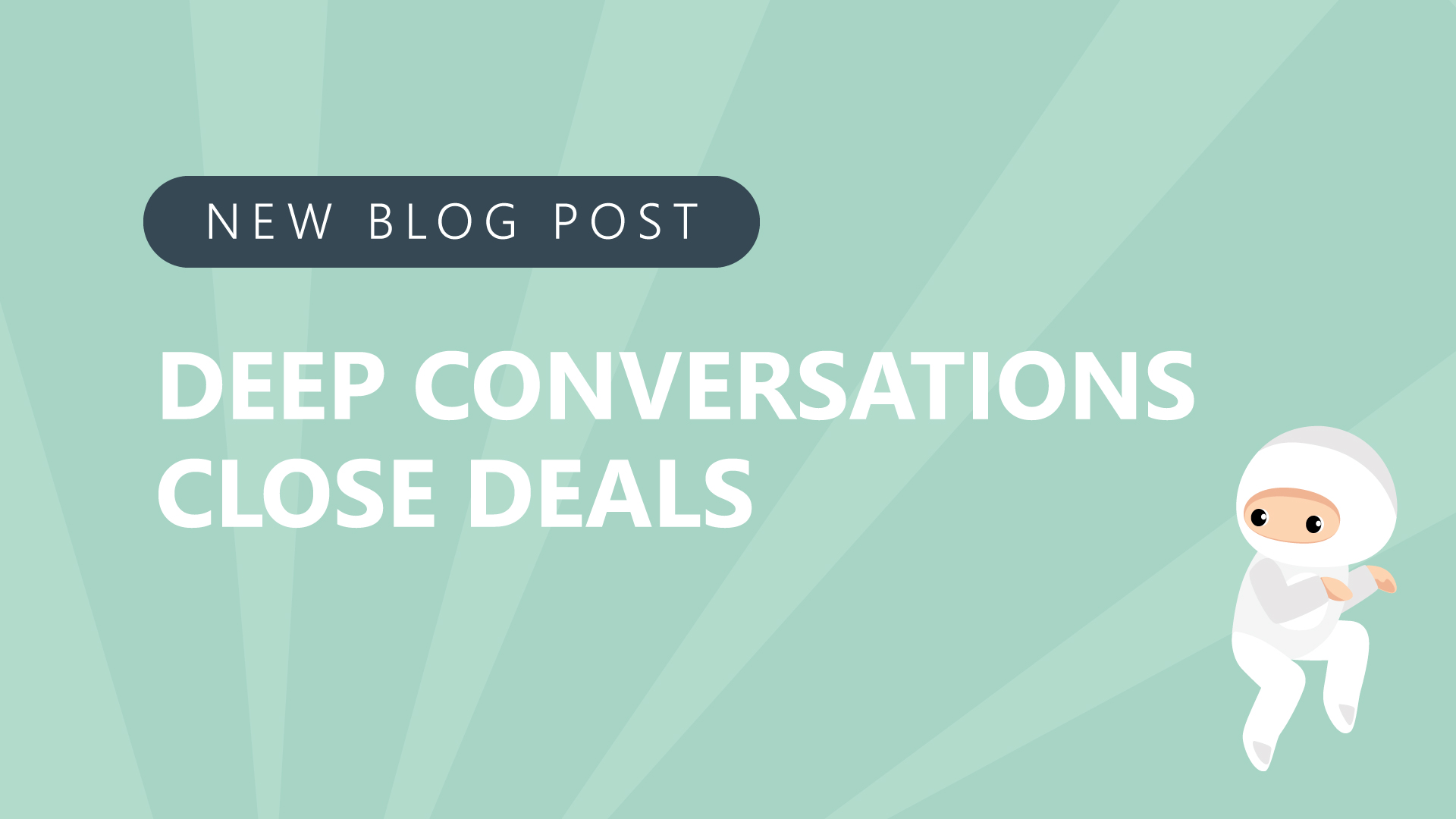Many salespeople and negotiators don’t close deals because the other party can tell they don’t care. They can tell it’s just another push to meet a quota. People know when they’re just another checkmark. But what if you employed a different strategy that isn’t a strategy at all? What if you learned to truly care about your prospect? Hoe do you convince someone to care?
How do we learn to care? In a recent episode of the Negotiations Ninja podcast, Dr. Mark Goulston emphasizes that people do what they care about, not what’s important. It’s important to eat healthily, but if you don’t care about it, you won’t do a great job of it.
How to convince someone to care
Dr. Goulston doesn’t try to persuade or convince people who need him but don’t want to hear what he has to say. But to help someone understand, he says something like, “I’d like you to think of someone who really cares about you. Raise your hand if you can think of that person.” Most people raise their hands. Then he says, “If you were to ask that person ‘What would be the positive impact on my success, my happiness, and our relationship if I became a better listener? Little, moderate, or large?’ Most people said ‘moderate.’”
So he pushes it further and asks, “If you were to ask that same person ‘what has been the negative impact that’s already happened on my success, happiness, and our relationship when I have been at my absolute worst as a listener?’” The answer is always “large.”
The audience starts having flashbacks to those moments when they were at their worst. Dr. Goulston will then start asking people to share those things. He can feel them begin to realize that when they’re at their worst, they’re terrible listeners. He can see them begin to desire change.
How do you combine genuinely caring with the need for a sale? Dr. Goulston has a few thoughts. One of his strategies is utilizing the “Magic Paradox.”
Dr. Mark Goulston’s magic paradox
The magic paradox comes into play when you’re picking up resistance. The other side may not have the words to say “no,” but they’re most certainly thinking it. When you pick that up, you feel the anxiety that the sale is getting away. That pushes most people to drive harder—which kills the deal completely. The magic paradox is one way you can flip someone without being pushy.
Dr. Goulston says to imagine you’re in a negotiation where your counterparty is nodding—but it’s just to be polite. The horse has left the barn. They’re expecting when they can get the signal to end the conversation. Instead, ask them to pause for a second. It throws them off balance, and they know that you’ve caught them tuning out.
Then you say, “I just put myself in your shoes, and when I was in your shoes, I asked myself—if I was you—what you were listening for from this conversation? What I realized is that what you’re listening for from this conversation has nothing to do with anything we’ve already talked about.”
You can point out that they were nodding politely, but you can see that they were listening for something else that hasn’t come up. Then you ask: “So what might that be that you were listening for that we haven’t talked about?” They will tell you. How do you go even deeper?
Employ a conversation deepener
What is a conversation deepener? When people use hyperbole like “awful,” “amazing,” or “terrific,” or their voice goes up, it carries emotional juice. If they use those words, ask them to elaborate on the “amazing” or the “terrible.” You’ll find that they open up more. As they do, they’ll be more open to the conversation going deeper. Thank them. Ask them to help you understand why things are important. The clincher—which is rather personal—is to say, “What’s really going on?”
Something that you can use if they hem and haw is saying, “I’ve had these conversations before with other people, and when I ask them what was really going on, can I tell you what they told me?” They’re usually intrigued. So Dr. Goulston would go on to say something like, “They usually tell me they need some wins because they’ve had some losses. Can you relate to that?” You need wins if you’re negotiating and selling anything. They need wins to show that they’re going to buy something where their boss congratulates and thanks them.
If you’d like more actionable negotiation strategies and tactics and to learn how to convince someone to care, Dr. Goulston shares his years of expertise in episode 191 of the Negotiations Ninja podcast.

